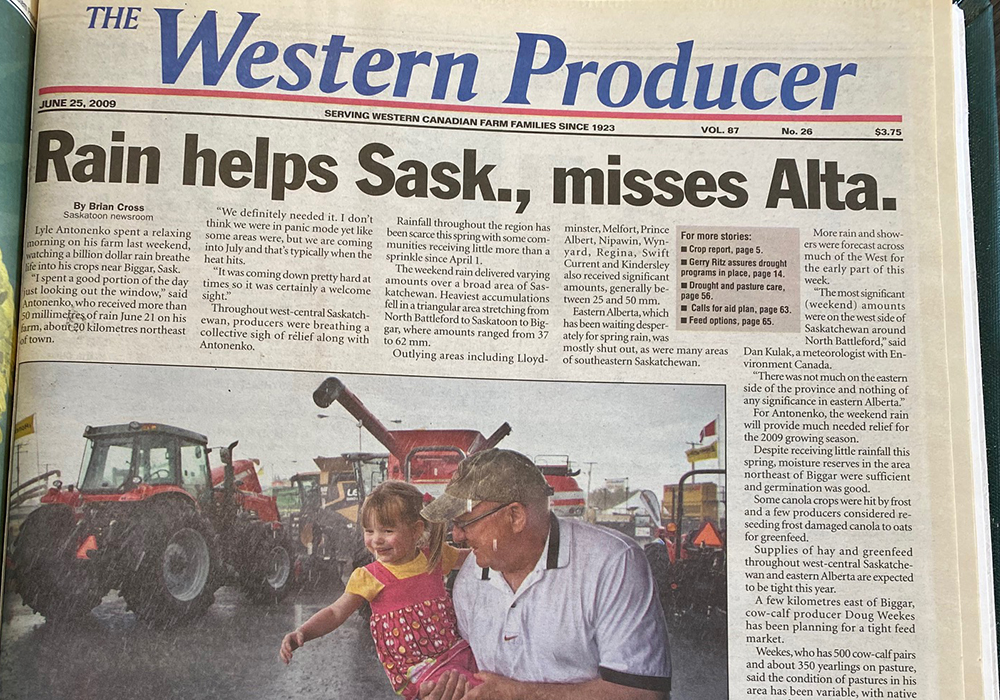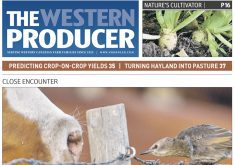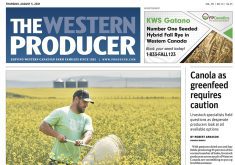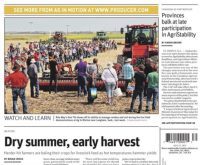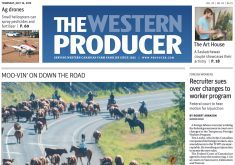For the next year, this column will mark The Western Producer’s 100th anniversary by taking a deep dive every week into a past issue of the paper.
Another drought loomed as the 2009 growing season moved from spring to summer.
Federal agriculture minister Gerry Ritz said existing government programs would help producers if the situation worsened, but stories in the June 25 issue indicated that things were already pretty bad.
Read Also

Worrisome drop in grain prices
Prices had been softening for most of the previous month, but heading into the Labour Day long weekend, the price drops were startling.
Producers were urged to examine their farms’ balance sheets and be more diligent about range management.
Many Alberta regions hadn’t had a decent rain in a year, and eight municipalities in the northeastern and central parts of the province had declared agricultural disasters.
Producers were advised to consider feed alternatives, and a website had been set up in Alberta to help them find hay.
The National Farmers Union and Grain Growers of Canada called on provincial and federal governments to begin preparing for a potential crop disaster.
There were reports of late developing crops due to cold weather and extremely dry conditions in parts of Alberta and Saskatchewan, as well as excessive moisture in Manitoba’s Red River Valley.
Saskatchewan agriculture minister Bob Bjornerud said the government was monitoring the situation and helping those affected.
Provincial opposition leader Dwain Lingenfelter called on the government to develop a plan, but Bjornerud did not take kindly to the advice.
“I find it really hypocritical of Mr. Lingenfelter to be hollering all of a sudden, when he was the deputy premier for so many years and really didn’t do much for farmers.”
In other news, the House of Commons agriculture committee received some advice on what not to do as Canada dealt with the repercussions of the U.S. country-of-origin labelling legislation.
Patrick Boyle, president of the American Meat Institute, warned MPs that Mexico and Canada would create a costly and lengthy delay if they took the United States to the World Trade Organization.
“We may not have a point to re-engage on COOL until that process is completed,” he said.
Mexico and Canada did take COOL to the WTO, and eventually won.

